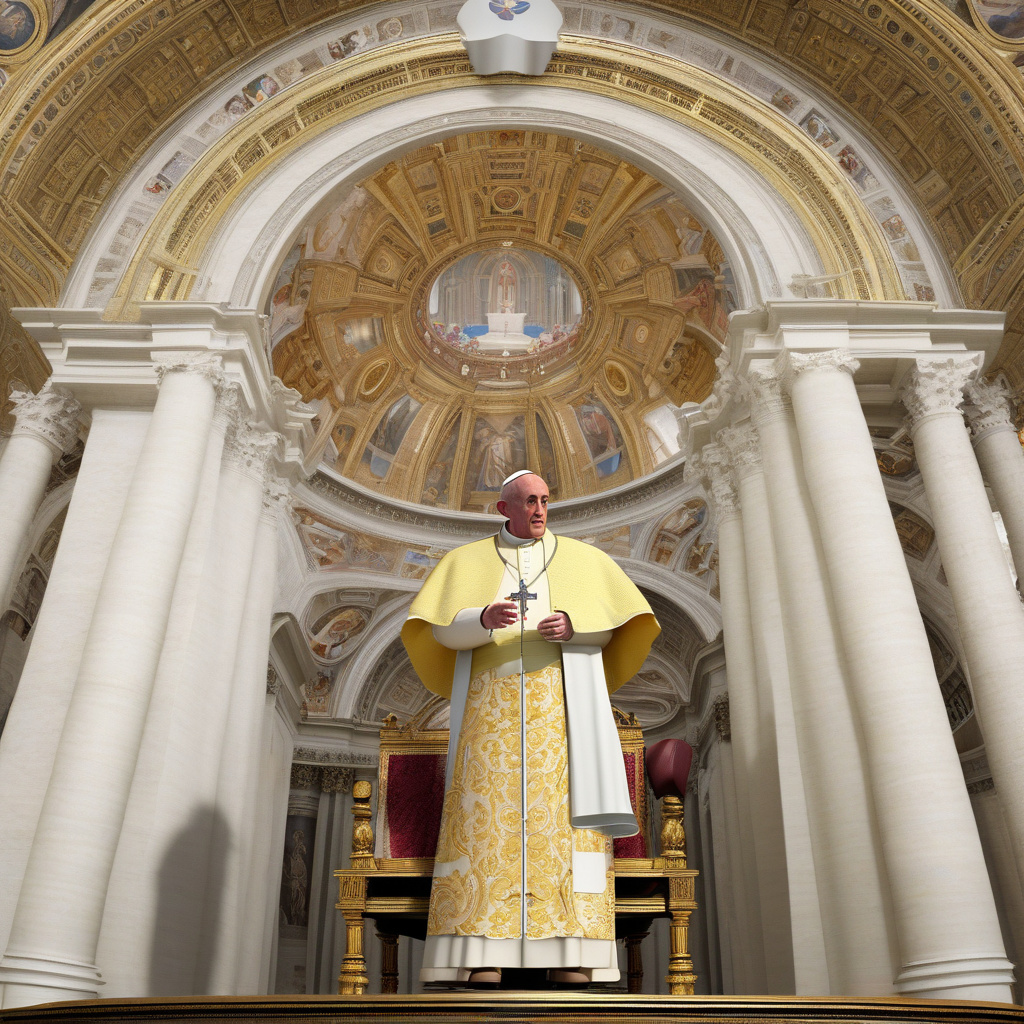In a surprising turn of events, Pope Leo XIV, the newly appointed American pontiff, is taking a bold stance on the threat posed by artificial intelligence to humanity. This move comes at a time when the tech industry has been striving to cultivate a positive relationship with the Vatican. Pope Leo’s decision to prioritize the discussion around AI’s impact on society is not only timely but also indicative of the growing importance of this issue in our rapidly evolving world.
The intersection of technology and ethics has long been a subject of debate, with artificial intelligence at the forefront of discussions. As AI continues to advance at an unprecedented pace, questions about its implications for humanity have become more pressing than ever. Pope Leo’s decision to address this topic signals a recognition of the profound moral and ethical challenges that AI poses, reflecting a deep sense of responsibility towards safeguarding the well-being of humanity.
The tech industry’s efforts to engage with the Vatican have been ongoing, with companies seeking to align their innovations with ethical frameworks and societal values. However, Pope Leo’s focus on the risks associated with AI underscores the need for a nuanced approach that goes beyond mere technological advancement. By highlighting the potential threats posed by AI, the pontiff is urging for a more comprehensive dialogue that takes into account the broader implications of these technologies on individuals and communities.
Pope Leo’s emphasis on the ethical dimensions of AI reflects a growing awareness of the need for ethical considerations to be integrated into the development and deployment of emerging technologies. As AI continues to shape various aspects of our lives, from healthcare to transportation, the importance of ensuring that these technologies are used responsibly and ethically cannot be overstated. Pope Leo’s advocacy for a more ethical approach to AI aligns with calls from experts and scholars for greater transparency, accountability, and human-centered design in the development of AI systems.
The Vatican’s engagement with the issue of AI highlights the significance of interdisciplinary collaboration in addressing complex societal challenges. By bringing together leaders from the tech industry, academia, and religious institutions, Pope Leo is fostering a dialogue that transcends traditional boundaries and seeks to find common ground on critical issues affecting humanity. This collaborative approach is essential in navigating the ethical, social, and philosophical implications of AI, as it requires a diversity of perspectives and expertise to develop holistic solutions that benefit society as a whole.
As Pope Leo XIV continues to make the threat of AI to humanity a signature issue of his pontificate, he is sending a powerful message about the importance of ethical leadership in the face of technological advancement. By raising awareness about the risks associated with AI and advocating for a more ethical approach to its development, Pope Leo is positioning the Vatican as a key player in shaping the future of technology for the benefit of all. In a world where the impact of AI is increasingly felt across all sectors of society, Pope Leo’s emphasis on ethical considerations serves as a timely reminder of the need to prioritize human values in the age of artificial intelligence.

